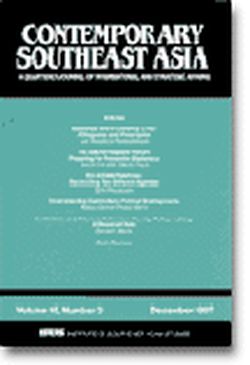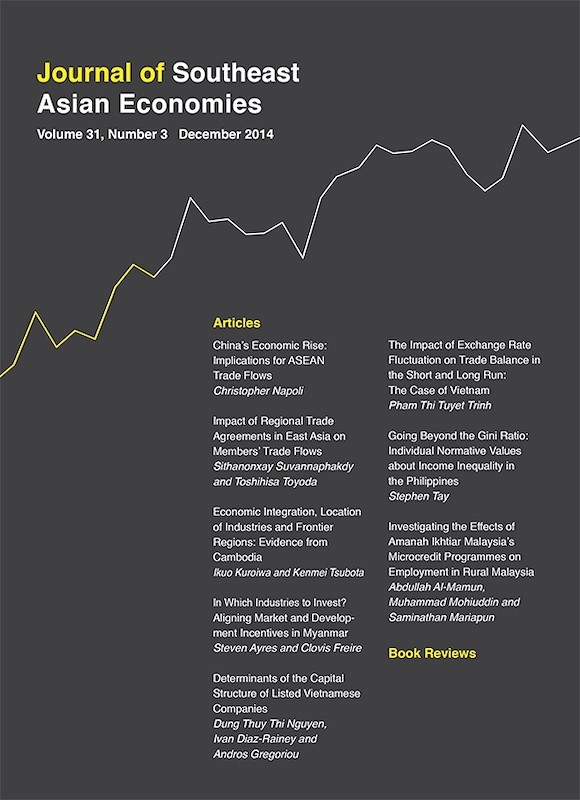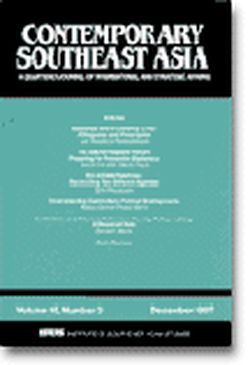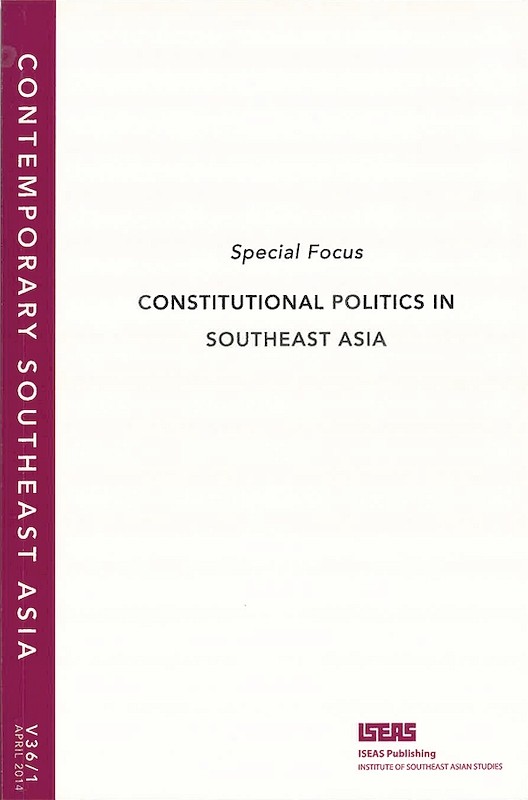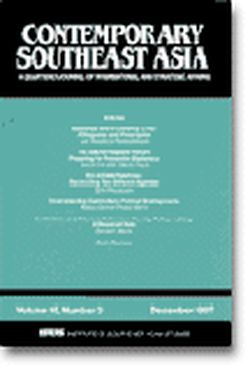SOJOURN: Journal of Social Issues in Southeast Asia Vol. 14/2 (Oct 1999). Special Focus on "Asian Ways: Asian Values Revisited"
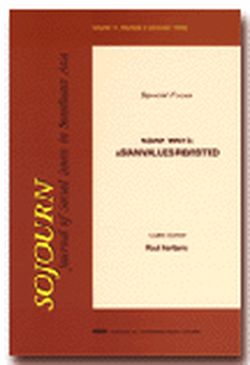
Raul Pertierra, editor
Date of publication:
October 1999
Publisher:
Institute of Southeast Asian Studies
Number of pages:
164
Code:
SJ14/2
Contents
-
Preliminary pages
-
Introduction (to Special Focus on "Asian Ways: Asian Values Revisited"), by Raul Pertierra, author
-
The Abdication of the Intellectuals: Sociology, Anthropology, and the Asian Values Debate or, What Everybody Needed to Know about Asian Values That Social Scientists Failed to Point Out, by Clive Schofield, author see abstractThe "Asian values" debate preceding the 1997 economic set-backs should be seen not only as a lost opportunity for the critical social sciences, but as a failure of nerve -- even responsibility -- especially among sociologists and anthropologists. The debate was framed not by free intellectuals but by noted ideologists of various state directorates, not so much to explain as to celebrate and capitalize politically upon the Asian Miracle. Explanations of accelerating Asian economic performances in terms of Asian values entailed an analytical regression, which social scientists should have identified as an insidious return of the structural functionalism of the 1960s, especially its simplistic attempts at explaining social situations by attributing causal power to various hypostatized or idealized value-complexes covertly abstracted from those situations. A similarly vulgarized Weberianism can be found in the intellectual structures of contemporary management theory. The issue that should have been addressed was not values but the pursuit of modernity in other than Western civilizational forms and how, intellectually and theoretically, as well as historically, it must be understood.
-
Is Communitarianism Uniquely Asian? A Filipino's Perspective, by Fernando N. Zialcita, author see abstractIt is often claimed that the heavy influence of Western individualism is at the heart of the Philippines many problems. Filipinos should therefore return to the Asian value of community-orientedness. This article questions whether there is in fact an Asia as a distinct cultural unity with values that differentiate it from the West. The concept of an Asia was invented in the West. Community-orientedness is equally fuzzy because community can mean different types of groups whose claims upon the individual may contradict each other. Still, various types of community-orientedness have been present both in the West and in the Philippines. Rather than look exclusively for values, it may be better to study urban areas as social systems in order to identify problems in such systems.
-
"Asian Values", Singapore, and the Third Way: Re-Working Individualism and Collectivism, by C J W-L Wee, author see abstractThis paper argues that we should not take at face value the differences between "East" and "West" when we interpret the Singapore Government's usage of the "Asian values" discourse. Instead, it would be better to look at the values raised in the discourse, such as freedom, "Individualism", and "Collectivism". We should ask how any state can have a notion of collectivism, given the present configuration of global capitalism, with its emphasis on the free market. U.K. debates over the so-called "Third Way" are an attempt to overcome this impasse. The paper argues that the Singapore Asian values discourse was a similar and earlier attempt at achieving such a "Third Way".
-
A Nation in Distress: Human Rights, Authoritarianism, and Asian Values in Malaysia, by Wan A. Manan, author see abstractThis paper discusses the relevance of the Asian values debate for Malaysia. It argues that Asian values is not a useful notion for understanding Malaysias attempts to modernize itself. In fact, this debate acts as a distraction and justifies the governments campaign to diminish human rights as well as cultural emancipation. Asian values often act as an excuse for authoritarianism and other abuses of government. Instead, we should examine why Malaysia and other Southeast Asian countries justify oppressive practices using the excuse of Asian values. Unless we find better answers, both the state and civil society in Malaysia will be seriously destabilized, thus risking the genuine economic achievements of the past decade.
-
Asian Values in Indonesia? National and Regional Identities, by Adrian Vickers, Lyn Fisher, authors see abstractIndonesia has not been involved to a marked degree in the Asian values debate. The major reasons behind this can be found in the nature of that debate: it is concerned with issues of identity, citizenship, and cultural engineering. All three aspects of Asian values were previously the focus of government policies by the New Order regime, policies based on state centralism rather than international regionalism. Balinese examples of debates about globalization revealed the contradictions inherent within attempts by Indonesia's New Order government to control values.
-
Joining the Values Debate: The Peculiar Case of Thailand, by Surin Maisrikrod, author see abstractThis article discusses the relationship between the Asian values debate and democratic development in Thailand. Although there are beliefs and practices that could be identified as Thai values -- which share common features with other Asian values -- what is more salient in the Thai case is that the debate is not over the unsuitability of liberal democracy to the Thai cultural context but over which set of values, Western or Thai, best promotes civil society and liberal democracy. Western-based democracy is unquestionably accepted as a basis for political legitimacy in Thailand. The globalizers see universalism as a major source of democratic development, while the communitarians believe such an aspiration could be best realized by going back to Thai cultural roots and values -- strong family ties, kinship, and co-operative community spirit -- which are anti-state and anti-authoritarian in character and hence pro-democracy.
-
BOOK REVIEW: Islam and Identity in Eastern Indonesia. By Michael Hitchcock, by James J Fox, author
-
BOOK REVIEW: Dance of Life: Popular Music and Politics in Southeast Asia. By Craig A. Lockard, by Lee Tong Soon, author
-
BOOK REVIEW: In Praise of Prambanan: Dutch Essays on the Loro Jonggrang Temple Complex. Edited by Roy E. Jordaan, by Helene Legendre De Koninck, author
-
BOOK REVIEW: War in the Blood: Sex, Politics and Aids in Southeast Asia. By Chris Beyrer, by Ray Langenbach, author
-
Index to Volume 14

